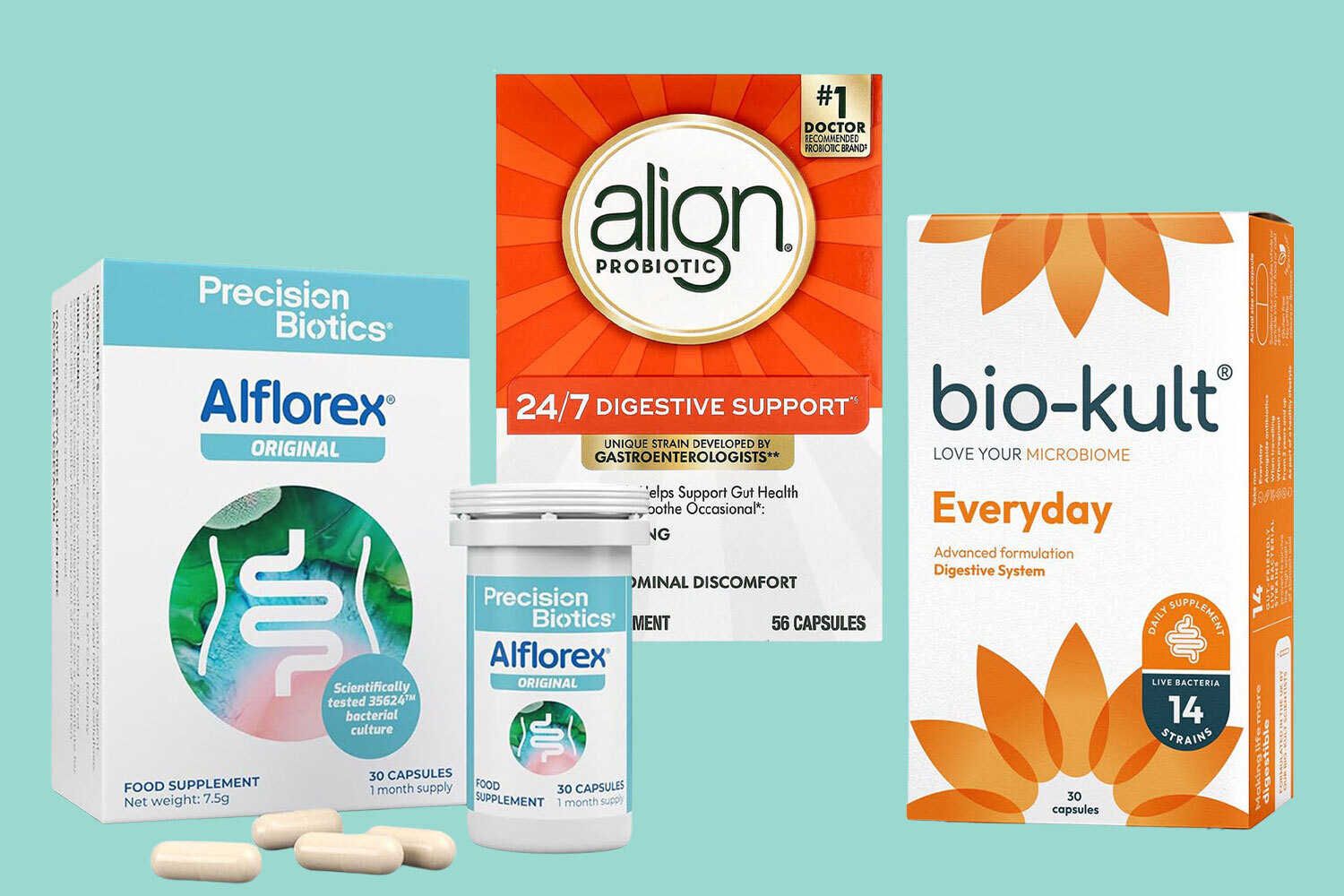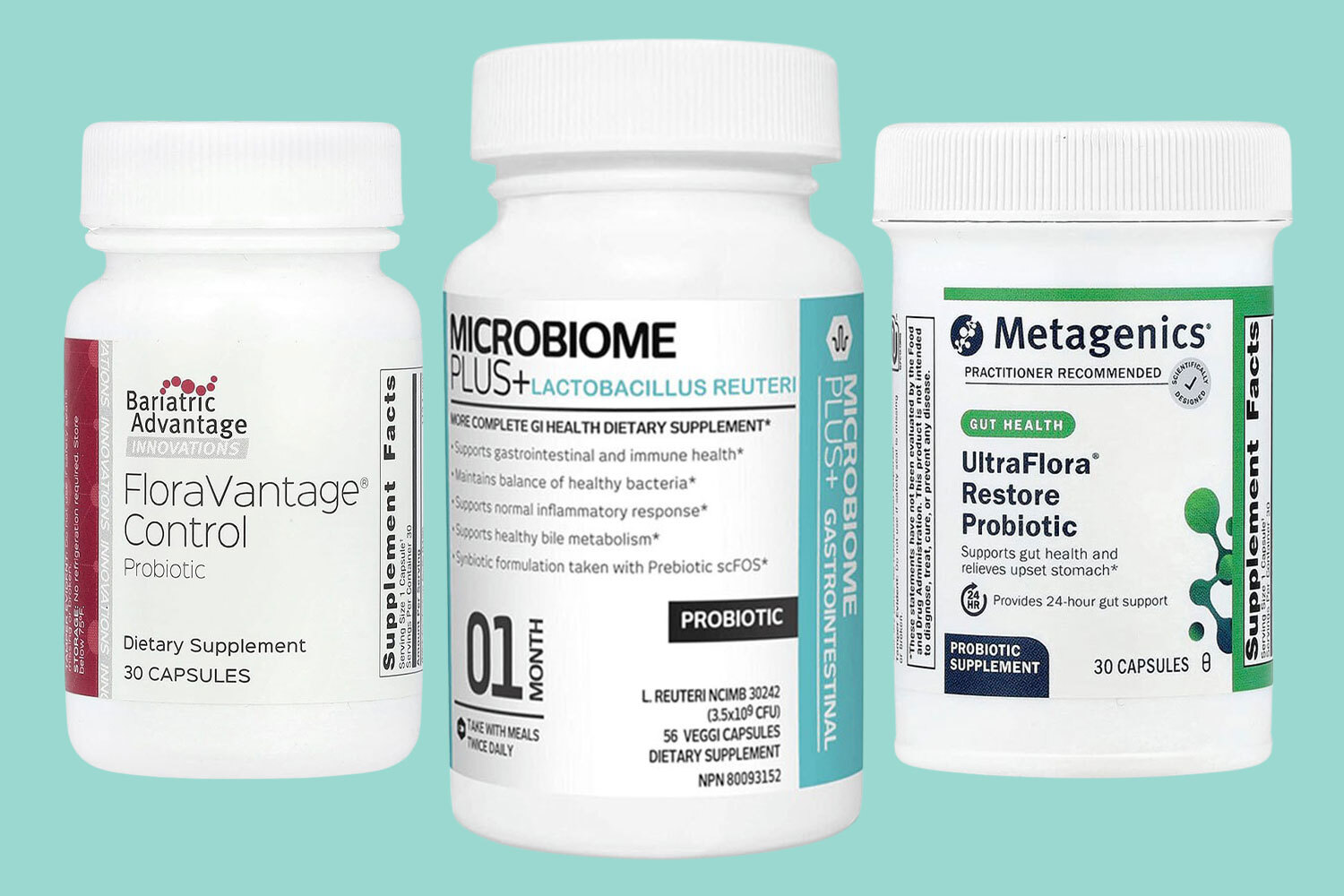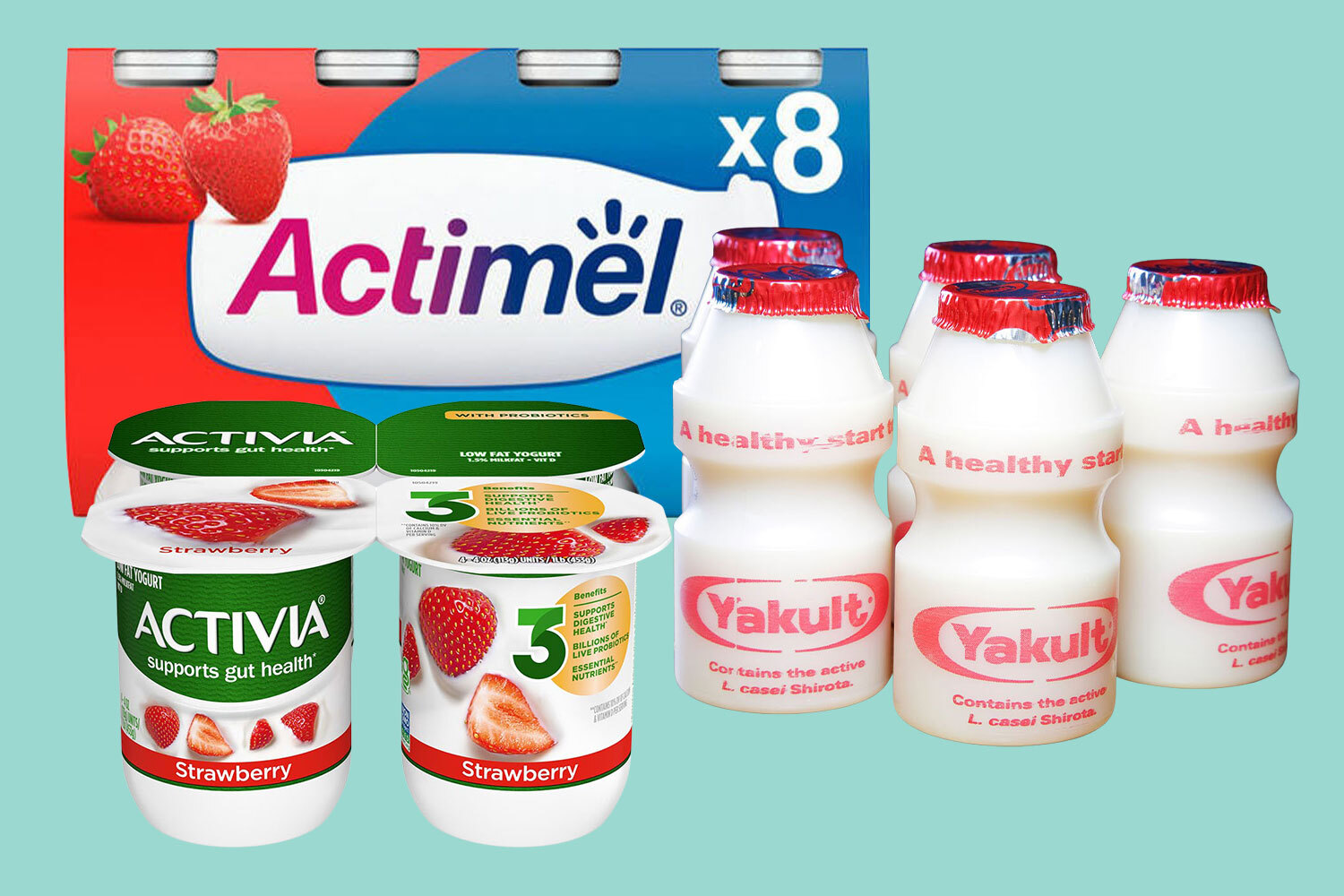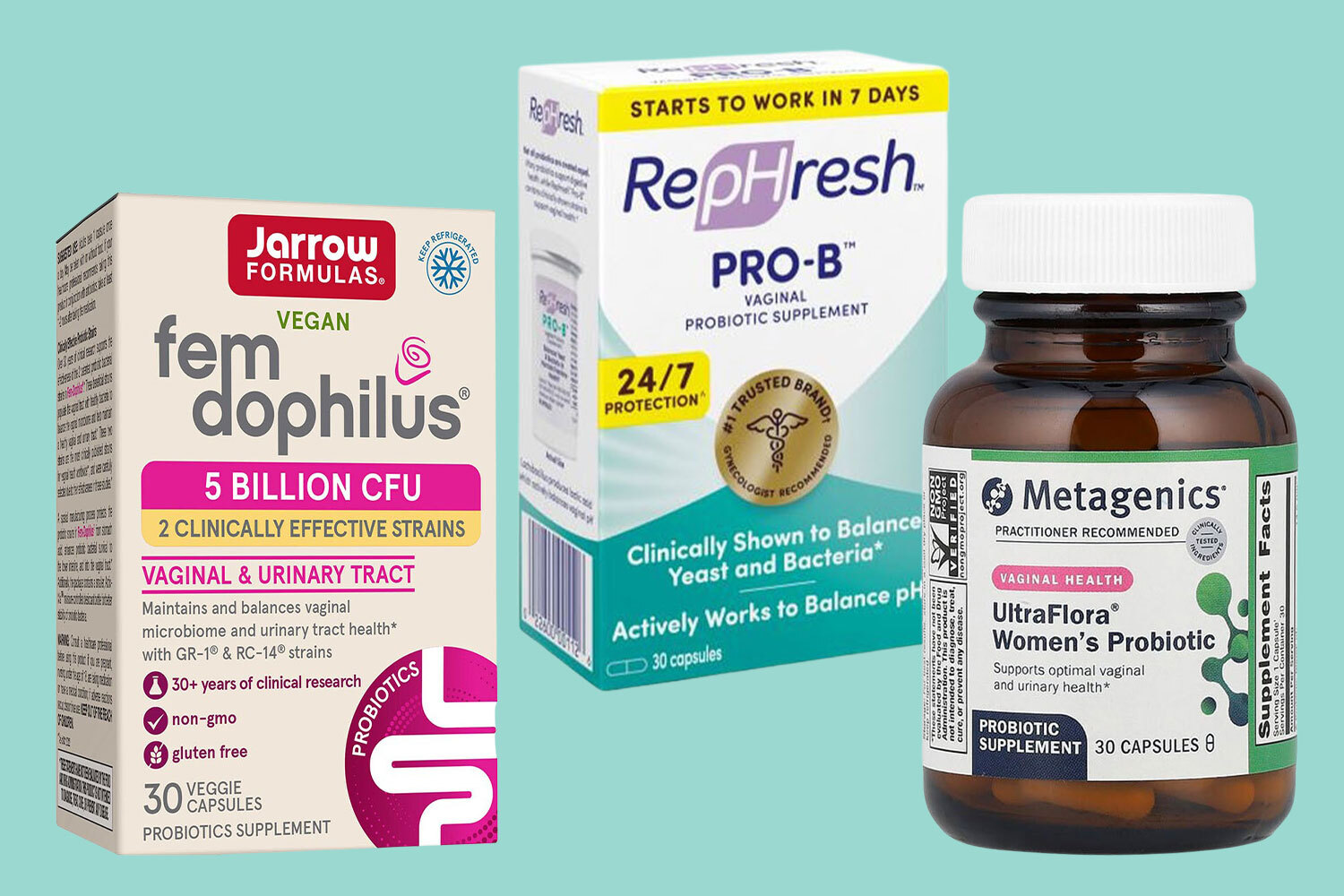Probiotics, the “gut-friendly” supplements and functional foods that purportedly transform your health, immunity and mental wellbeing, are part of a market worth £178 million — and rising. By 2035 it is estimated we will be spending £242 million on tending to our microbiome, the vast ecosystem of bacteria, fungi and yeasts that inhabit our intestines. But what happens when these products are subjected to scientific scrutiny of the highest order — do they really live up to their claims?
Until now consumers had no way of telling if the probiotic pill they were popping was worth taking or better left on the shelf. “The probiotic market has exploded, but choosing the right product remains incredibly challenging,” says Dr Gemma Walton, a researcher at the University of Reading’s department of food and nutritional sciences. “Well-researched products sit on the shelves next to others that may have very little research behind them.”
But the launch of a free evidence-based guide, available as a website and app, aims to sort the wheat from the chaff in the minefield of gut-health options. Walton is one of a team of nutrition scientists from Reading, the University of Leeds, King’s College London and the US and Canada-based Alliance for Education on Probiotics, who ensure that the new database, which is updated regularly, includes only probiotic products that meet stringent criteria.
All must be on sale commercially in the UK, contain strains of bacteria recognised as safe by regulatory authorities including the European Food Safety Authority, and be supported by rigorous clinical evidence for specific strains and combinations contained in each capsule or shot. It’s a level of scrutiny that is well beyond the capabilities of anyone browsing online or scanning rows of bottles and jars in a health shop. Approved products have been tested and shown to help certain strains to survive acid in the stomach and small intestine.
And it is long overdue, says Kieran Tuohy, professor of energy metabolism and microbiome at the University of Leeds’s school of food science and nutrition, another member of the team. “Every time I give talks to consumers, medical doctors or dieticians, the first question we get asked is which probiotic they should take or prescribe,” he says. “There really is a lack of understanding about these products among medical professionals and the general public, and the aim was to get the science together so that people can search for evidence-backed products in a single place.”
As evidence emerges for new strains of bacteria and more products are launched, they will be reviewed and added (or not) to the database. Even if supplements do stand up to the peer-reviewed analysis, choosing which to take is not as straightforward as picking any product off a supermarket shelf. Tuohy says bacteria strains need to be matched to specific symptoms or requirements. “There are some characteristics that work across different strains,” Tuohy says. “All lactobacilli strains, for example, might help people with lactose intolerance to digest lactose in food and avoid the bloating and gas associated with the problem.” Symptoms of IBS, IBD or inflammatory conditions, are probably more strain-specific and taking a general probiotic may make no difference at all to these conditions. “Only a few individual strains of bacteria might be able to help with these,” Tuohy says. “And that’s the kind of evidence we are providing.”
• How to boost your gut microbiome for a better workout
Tuohy says there is a strong argument for ingesting live organisms in supplement or food form. “Our modern diet is very different from that of our ancestors and we get a lot less micro-organism in our diets,” he says. “Food is more refined, we cook everything, a lot of the foods we eat are packaged for a long shelf life and in order for them to be long-lasting, manufacturers have to get rid of all the bacteria.”
Fashionable fermented foods such as kimchi, sauerkraut and kombucha, a fermented tea, may also have a positive effect on your microbiome, although evidence from good-quality human trials is still limited. “That’s mainly because there hasn’t been commercial interest to conduct studies because they are expensive to do. It’s not necessarily that these foods might not work,” Tuohy says.

A recent study found that a daily portion of kimchi can cut the risk of obesity by 11 per cent
GETTY IMAGES
We certainly shouldn’t overlook other fermented options such as natural live yoghurt and cheese. “Probiotics delivered in food are naturally protected against stomach acid,” Tuohy says. Largely thanks to the bacteria added during the manufacturing process to convert the naturally occurring milk sugar, lactose, into lactic acid, fermented cheeses such as stilton, aged cheddar, parmesan and gruyere are the best choices.
Generally, a diet that helps your microbiome to flourish should contain as wide a variety of plant foods as you can muster, with the target being 30 varieties of fruit, vegetables, herbs, spices and pulses a week. It sounds a lot but is manageable when you consider that even coffee emerged as an unexpected gut health hero in a Nature Microbiology journal study last year. Researchers, including from King’s College London, suggested that drip and espresso are the methods that extract most beneficial polyphenols, the dense chemicals that are a type of antioxidant, from coffee beans, but since the process of freeze-drying coffee also preserves them, a bog-standard instant coffee has gut benefits too.
• Gut health recipes: three ways to cook with fermented and pickled foods
If you do choose a supplement, the advice is to take it first thing on an empty stomach. “For a higher survival rate and colonisation of the bacteria, probiotics are best taken in the morning when you are in a fasted state,” says Alex Ruani, nutrition researcher at University College London and chief science educator at the Health Sciences Academy. “Because the tiny but mighty beneficial bugs can be killed by heat, I also like to wait about 30 minutes before having a hot drink to give them a better chance of making it farther down the line where they can colonise the gut.”
Ruani is a fan of probiotic products and Walton says she tries “different products that have been added to the website”, preferring to rotate brands. Tuohy sticks to a daily intake of yoghurt and kefir. “There is such a lack of micro-organisms in our diet and we should be trying to encourage people to consume more of them,” he says. “Fermented foods provide additional nutrients but get your probiotics wherever you can.”
Which products meet the scientific standards?
The following probiotics, all available in the UK, are among those that currently satisfy the highest level of evidence-based criteria (with at least one appropriately designed and randomised supporting trial) set by the UK peer-reviewers for the Alliance for Education on Probiotics. Anyone with an underlying medical condition or who is taking medication should not substitute probiotics for standard treatment and should speak to a medical professional before taking any supplements. Values below are for adults.
Top supplements for general health
Alflorex tablets, Align and Bio-Kult
Alflorex tablets (chewable and original)
Bacterial strain: B. longum
Daily serving: 1 tablet/capsule
Evidence for: IBS
From £24.99, precisionbiotics.co.uk
Align
Bacterial strain: B. longum (Align Extra Strength) and B. lactis (Align Gut Health and Immunity Support)
Daily serving: 1 tablet/capsule
Evidence for: IBS (Extra Strength), constipation (Gut Health and Immunity Support)
From £24.53, uk.iherb.com
Bio-Kult
Bacterial strains: Bacillus subtilis, B. bifidum, B. breve, B. infantis, B. longum, L. acidophilus, L. delbrueckii ssp. bulgaricus, L. casei, L. plantarum, L. rhamnosus, L. helveticus, L. salivarius, L. lactis ssp. lactis, Streptococcus thermophilus
Daily serving: 4 capsules
Evidence for: IBS, migraine
£10.48, bio-kult.com

BioGaia, Culturelle Digestive Daily, Health and Wellness, and Ultimate Strength and Optibac S. Boulardii
BioGaia
Bacterial strain: L. reuteri
Daily serving: 1 tablet or lozenge
Evidence for: Helicobacter pylori stomach infection alongside standard medication (BioGaia Gastrus and Protectis), oral health (BioGaia Prodentis)
From £17.49, uk.biogaia.com
Culturelle Digestive Daily, Health and Wellness, and Ultimate Strength
Bacterial strain: L. rhamnosus
Daily serving: 1 capsule or tablet
Evidence for: antibiotic-associated diarrhoea, Helicobacter pylori stomach infection with standard medication
From £25.98, uk.iherb.com
Optibac S. Boulardii
Bacterial strain: Saccharomyces boulardii lyo
Daily serving: 1-2 capsules
Evidence for: antibiotic-associated diarrhoea, Helicobacter pylori stomach infection with standard medication, travellers’ diarrhoea
£19.99, optibacprobiotics.com
• What are kefir, kombucha, kimchi — and which is best for you?

FloraVantage Control, Microbiome Plus+Probiotic and UltraFlora Restore
FloraVantage Control
Bacterial strain: B. animalis ssp. lactis
Daily serving: 1 capsule
Evidence for: weight management
£47.83, uk.iherb.com
Microbiome Plus+
Bacterial strain: L. reuteri
Daily serving: 2 capsules
Evidence for: reduces LDL and total cholesterol
£50.99, ishopnutrition.com
UltraFlora Restore
Bacterial strains: B. lactis Bi-07, L. acidophilus, B. lactis Bl-04, L. paracasei
Daily serving: 1 capsule
Evidence for: antibiotic-associated diarrhoea
£39.96, uk.iherb.com
• Read more expert advice on healthy living, fitness and wellbeing
Top functional foods Actimel yoghurt drink
Actimel yoghurt drink
Bacterial strain: L. casei sp. paracasei
Daily serving: one drink
Evidence for: antibiotic-associated diarrhoea, common infectious diseases
£3.75, sainsburys.co.uk
Activia Gut Health yoghurts
Strain: B. (animalis) lactis
Daily serving: one pot
Evidence for: IBS, constipation
£2.45, tesco.com
Yakult
Strain: L. casei Shirota
Daily serving: 1-2 bottles
Evidence for: constipation, common infectious diseases
£3.95, waitrose.com
Top for women’s health
Jarrow Formulas Fem-Dophilus, RepHresh Pro-B and Ultra-Flora Women’s
Jarrow Formulas Fem-Dophilus
Strains: L. rhamnosus, L. reuteri
Daily serving: 2-4 capsules of one-billion dose, 1 capsule of five-billion dose
Evidence for: bacterial vaginosis, vulvovaginal candidiasis
From £24.24, amazon.co.uk
RepHresh Pro-B
Strains: L. rhamnosus, L. reuteri
Daily serving: 2-4 capsules
Evidence for: bacterial vaginosis, vulvovaginal candidiasis
£33.95, uk.iherb.com
UltraFlora Women’s
Strains: L. rhamnosus, L. reuteri
Daily serving: 1-2 capsules
Evidence for: bacterial vaginosis, vulvovaginal candidiasis
£33.70, uk.iherb.com
Full listings at probioticguide.uk. App available on Apple and Android
